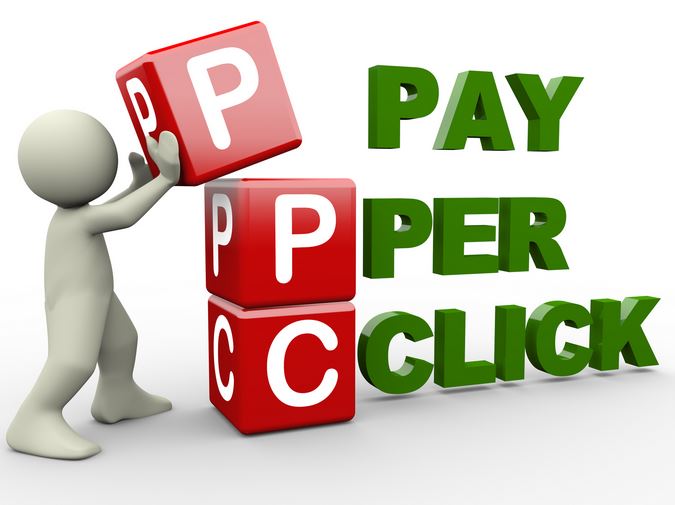Pay Per Click (PPC) advertising is the process of creating display or text ads which appear on search engines when visitors search under specific keywords. Some have called it the holy grail of online marketing. This has been true for many years.
Although with the rise of social media and the increased complexity of search engine optimisation, PPC is in good company as online marketing tools are developing. However having said that, PPC is the place to start and will consistently bring you a good ROI if you do it properly.
Getting Started With Pay Per Click Advertising
Here are five tips to ensure you are maximising your PPC efforts and effectively allocating your budget. There are plenty of ways businesses can do PPC wrong and burn money, time and sadly lose faith in what online marketing can do for their bottom line.
1) Find Out If It’s The Right Model For Your Business
According to Melbourne Web Design Company Magicdust – “PPC will work for about 95% of all businesses, generally if your average sale is above $30-50 you can make it work”. Very low sale prices with tiny margins make it difficult to add in a budget for PPC.
If you know your product lifecycle well and the lifetime value of your customers, it can then help you work out how much you can afford to spend to get a new client. Some campaigns are set up to build mailing lists or audiences, so there may be more of an indirect ROI, but either way work out what your goals are and get going.
2) Keywords
Using Google AdWords keyword tools, you can research and identify the keywords people are actually searching and the number of these searches actually being performed.
This helps you get your targeting right. You might think ‘bed linen’ is your main keyword, but in fact you might get five times more searches under ‘quilt covers’. So it pays know your keywords well when considering your PPC strategy.
3) Budget
Setting your budget is the key to success with Google AdWords. Remember Google will never charge you more than your daily budget. So don’t be afraid. When you start out, allocate about $10 per day for the first month.
A good $300 trial should let you know what kind of results you can expect. Some keywords, like those that relate to ecommerce, for example, can get expensive per click so you may need a higher budget to find the sweet spot.
This becomes pretty clear when you place your bids. If you don’t show up on the first page, it’s a cue to increase your bids. AdWords bidding and budgeting is an art and a science. It is a good idea to read up on this before you begin, to avoid testing AdWords incorrectly and loosing hope. Because once you find the sweet spot that works for you, it can transform your entire business!
4) No Display Network
In the beginning you will want to turn off your ads from appearing on the display network. This is when your ad appears on other websites via Google Adsense.
The reason being is that these ads appear on loosely associated keywords, and can confuse your testing in the early stages. You want to keep your keywords targeted and your budget measureable.
5) Ad Copy
Create clean & catchy copy for your PPC ads. You have three lines with limited characters per line. Ensure your keyword is in the title of your ad. This is why it is a good idea to have different copy for each keyword’s advertisement.
The second and third line should end with a feature and a benefit. Once you get familiar with AdWords you can start testing out different types of copy by moving the lines around or focussing on different benefits. This is called split testing or A/B testing.
These five tips are just the beginning, there is a lot more to getting PPC campaigns working well for you. Things you want to consider as you move forward are landing pages for these campaigns, and what content and call to actions are featured on those pages.
How you will direct PPC visitors through your website in order to do what you want them to do? There are plenty of in-depth metrics to consider carefully for a successful ongoing AdWords strategy.
Bonus Tip!
Measurement and analytics is a very important part of optimising your PPC campaign. Numbers talk and that’s true for AdWords. Ensure you have all the tracking codes in place on your website so you can see which ads are converting and which keywords are your strongest.
At every point the numbers will give you information and clues as to what you need to iron out to get the account humming along.
PPC can be a revolutionary addition to a small business online marketing strategy. Do your research, talk to professionals, find the sweet spot and you will enjoy the magic and power of the internet. It’ll take a bit of effort in the beginning but don’t give up; unless you give it your best shot you may be selling yourself short.
Google wouldn’t be as big as it is today if AdWords didn’t work. Millions of businesses have great success using pay per click advertising, one of them might as well be you!
This article was contributed by Magicdust, a Melbourne Web Design Company providing professional online marketing services, website design and e-commerce solutions.
Join 25,000+ smart readers—don’t miss out!











2 Comments
Harshil, very good reasoning re: PPC spend – I find you need to invest to see the return, not get disgruntled after spending only $100 on Google ads and expecting to become rich! Very objective analysis – thanks.
your post is great we are in the company getting the right way to start with ppc…
Very Nice guide about PPC Marketing…